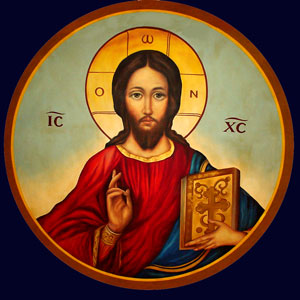LUTHER 1527 Arianism

LUTHER 1527
From this I can easily and elegantly rave that Christ’s meaning is as follows: This bread in the Supper is his body, which he made as God who makes all bodies and calls them his bodies; moreover, he ordains this to be his body with the intention that it should be his body in a new manner, viz. to be eaten in remembrance of him. Thus the bread should be called his body for two reasons, first on account of the creation, secondly on account of the ordinance, in opposition to Moses and the body of the paschal lamb in the Old Testament, in which he calls the same bread his body, i.e. a body for his use. Just as I call a knife “my iron,” or a coat “my cloth,” on account of their use, although not I but God alone made them in respect to their substance, and not I but the smith or tailor made them in respect to their form. So too, Christ can easily call the bread his body, since he has made and now uses this body for his own purpose. -Martin Luther
Arianism
Athanasius met the theological objections of the Arians with overwhelming dialectical skill, and exposed the internal contradictions and philosophical absurdities of their positions. Arianism teaches two gods, an uncreated and a created, a supreme and a secondary god, and thus far relapses into heathen polytheism. It holds Christ to be a mere creature, and yet the creator of the world; as if a creature could be the source of life, the origin and the end of all creatures! It ascribes to Christ a pre-mundane existence, but denies him eternity, while yet time belongs to the idea of the world, and is created only therewith, so that before the world there was nothing but eternity. It supposes a time before the creation of the pre-existent Christ; thus involving God himself in the notion of time; which contradicts the absolute being of God. It asserts the unchangeableness of God, but denies, with the eternal generation of the Son, also the eternal Fatherhood; thus assuming after all a very essential change in God. Athanasius charges the Arians with dualism and heathenism, and he accuses them of destroying the whole doctrine of salvation. For if the Son is a creature, man remains still separated, as before, from God; no creature can redeem other creatures, and unite them with God. If Christ is not divine, much less can we be partakers of the divine nature and children of God.
HISTORY OF THE CHRISTIAN CHURCH Schaff Volume 3 NICENE AND POST-NICENE CHRISTIANTY A.D. 311-600
(Pages 648-649)


0 Comments:
Post a Comment
<< Home